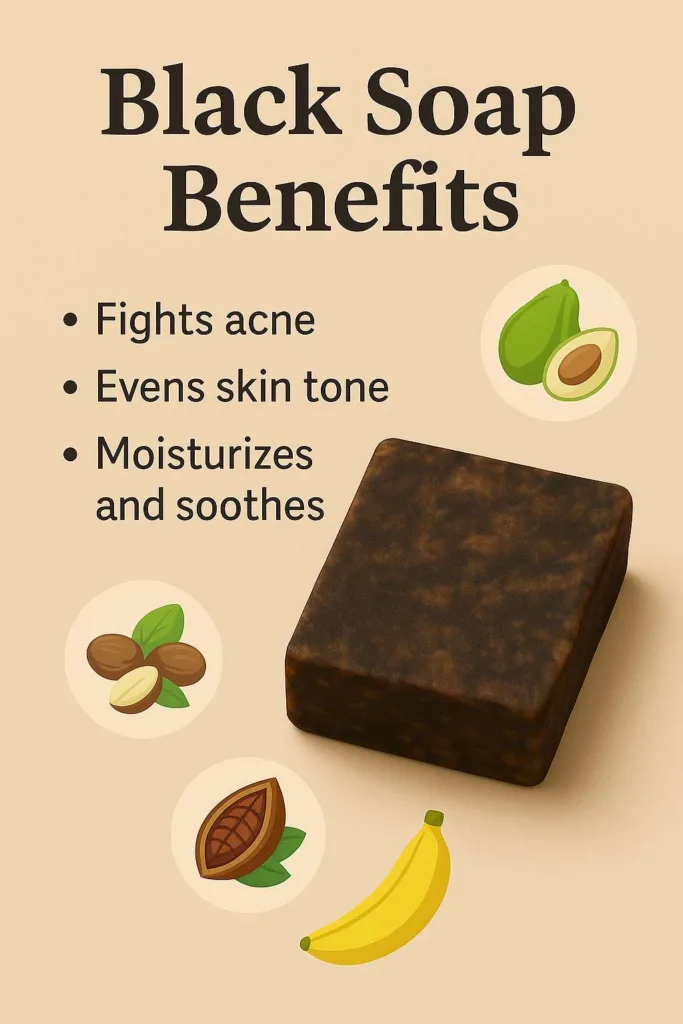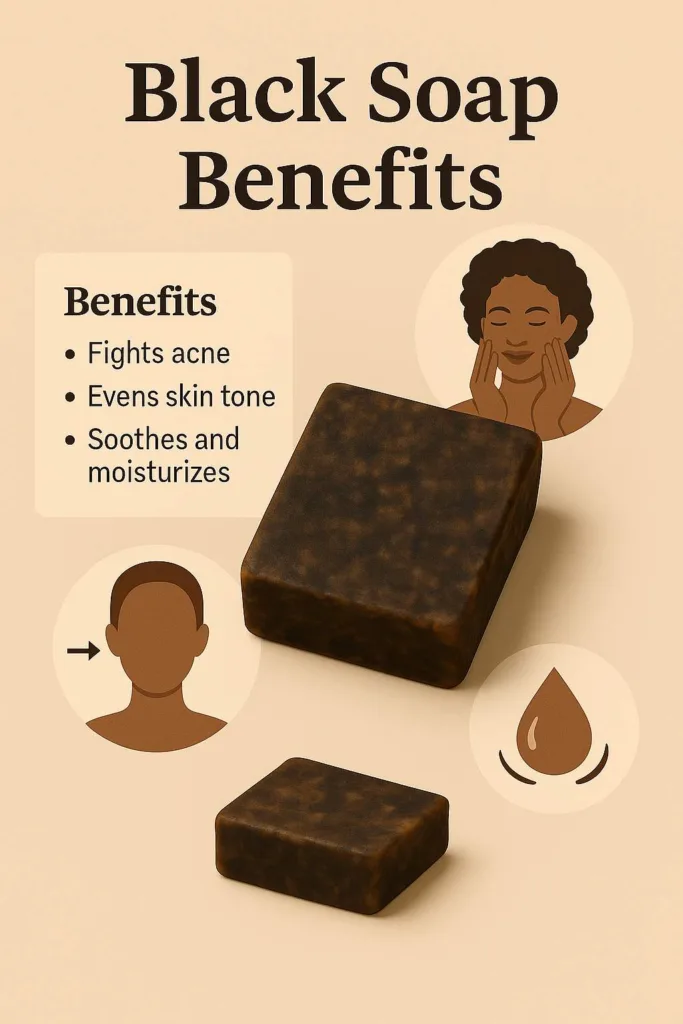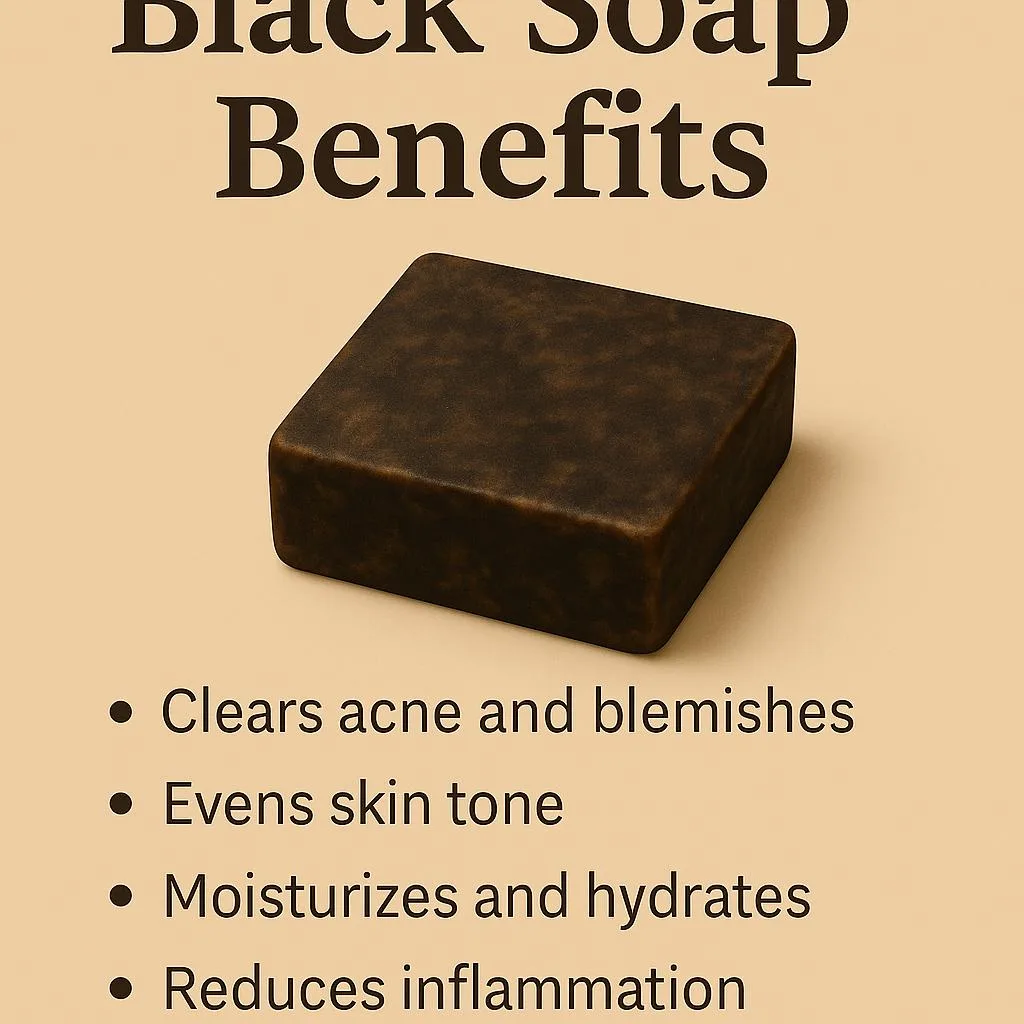Introduction: Why Black Soap is Gaining Popularity
The skincare world has witnessed a remarkable shift toward natural, minimalist formulations, and black soap has emerged as a frontrunner in this movement. With its rich cultural heritage and promising benefits, black soap has captured the attention of skincare enthusiasts worldwide. However, the term “black soap” encompasses different varieties – African black soap, Moroccan black soap (Beldi soap), and shouldn’t be confused with activated charcoal soaps. The question remains: does black soap truly live up to its reputation?

Origins and Classification
African Black Soap
Represents centuries of West African skincare wisdom, traditionally crafted from plantain skins, palm kernel oil, cocoa pods, and shea butter. The distinctive dark color comes from ash derived from locally harvested plants, creating a unique alkaline base that sets it apart from commercial soaps.
Moroccan Black Soap (Beldi Soap)
Offers a different experience entirely. This olive-based paste, integral to traditional Hammam bathing rituals, provides a luxurious cleansing experience rooted in North African spa culture. Unlike its African counterpart, Moroccan black soap has a smooth, gel-like consistency.
Activated Charcoal Soaps
It’s crucial to distinguish traditional formulations from modern activated charcoal soaps, which achieve their dark color through added charcoal rather than plant ash.
Key Benefits
1. Superior Cleansing Power
Black soap’s natural alkalinity effectively removes excess oil, dirt, and impurities from the skin. This makes it particularly beneficial for those with oily skin types or individuals living in humid, tropical climates where sebum production tends to increase.
2. Antibacterial and Acne Management
The antimicrobial properties of black soap help combat acne-causing bacteria, making it effective for both facial breakouts and body acne. Many users report improvements in razor bumps and ingrown hairs, particularly beneficial for men who shave regularly.
3. Gentle Exfoliation
The plant ash in traditional black soap provides natural, mild exfoliation without harsh microbeads. This gentle scrubbing action helps remove dead skin cells, promoting smoother skin texture over time.
4. Skin Tone Enhancement
Regular use may contribute to a more even skin tone by gradually reducing the appearance of dark spots and hyperpigmentation. Users often report a natural brightening effect after consistent use.
5. Versatile Body Care
From traditional Hammam treatments to modern shower routines, black soap adapts to various cleansing needs, making it suitable for full-body care beyond facial applications.

Potential Risks and Precautions
Despite its benefits, black soap’s alkaline nature can disrupt the skin’s natural pH balance, potentially leading to dryness or compromised skin barrier function. Individuals with sensitive or dry skin should exercise particular caution. The frequency of use and application area (face versus body) significantly impact tolerance levels.
Proper Usage Guidelines
Patch Testing
Before incorporating black soap into your routine, conduct a patch test on a small skin area.
Frequency by Skin Type
- Oily skin: may tolerate daily use.
- Dry or sensitive skin: should limit application to 2-3 times weekly.
Aftercare
Always follow up with adequate moisturization, and consider using gentler formulations on facial skin compared to body applications.
Purchasing and Authenticity
Regional Origins
Authentic black soap originates from Ghana, Nigeria for African varieties, and Morocco for Beldi soap.
Ingredient Awareness
Examine ingredient lists carefully and look for traditional components like plantain ash, palm oil, and shea butter.
Texture and Appearance
Genuine African black soap should have an uneven, rustic texture rather than a perfectly smooth appearance, which often indicates industrial manufacturing.
Real-World Experience
A three-week trial revealed mixed results: significant improvement in body acne and smoother skin texture, but initial tightness requiring increased moisturization. Razor bump reduction was noticeable within two weeks, though facial use required scaling back due to over-drying. These varied experiences highlight the importance of personalized approaches.
Frequently Asked Questions
Can I use black soap daily?
This depends on your skin type. Oily skin may tolerate daily use, while sensitive skin should limit to 2-3 times weekly.
Is it safe during pregnancy?
Generally yes, but consult your healthcare provider for personalized advice.
Can I wash my hair with it?
While possible, black soap’s alkalinity may be too harsh for regular hair use.
Is it compatible with acids or retinoids?
Use with caution and space applications apart to avoid irritation.
Is it suitable for men’s skincare?
Absolutely – its simplicity and effectiveness make it ideal for minimalist male grooming routines.

Conclusion and Recommendations
Black soap offers genuine benefits for specific demographics: those with oily or acne-prone skin, individuals dealing with body acne, and men seeking streamlined skincare solutions. However, people with dry, sensitive skin or compromised skin barriers should approach with caution.
The key to success lies in gradual introduction, consistent moisturization, and personalized adjustment based on skin response. Rather than viewing black soap as a universal solution, consider it a powerful tool that requires thoughtful integration into your skincare routine. Start slowly, listen to your skin, and adjust frequency and application areas accordingly for optimal results.